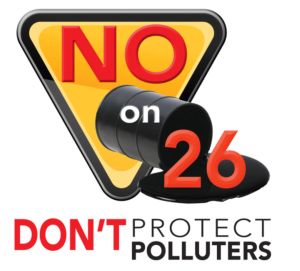California voters handily defeated Proposition 23 on Election Day, ensuring that state regulators can move forward on implementation of AB 32, the Global Warming Solutions Act of 2006. Just last week, the California Air Resources Board (CARB) issued a Proposed Regulation Order establishing a statewide cap-and-trade system, which is subject to final approval on Dec. 16, 2010; having cleared the Prop. 23 hurdle, that regulatory process will now continue apace, unhindered for the time being by other political roadblocks.
Yet what the ballot box giveth, the ballot box may taketh away.
While Prop 23 failed to garner enough Californians’ support to stop climate change regulation in its tracks, a less well-publicized but potentially more troubling proposition succeeded at the polls. Proposition 26, passed with 52.6 percent of the vote on Nov. 2, amends the California constitution to require a two-thirds supermajority vote in the state legislature to make “any change in state statute which results in any taxpayer paying a higher tax.” (Click here for the full text of the proposition). Aside from the clear fiscal impact of such a change — taxes could be levied with a simple majority under the state’s previous rules — this inocuous language may make it difficult, if not impossible, for regulators to implement some components of AB 32.
This is because Proposition 26 defines “tax” broadly, as “any levy, charge, or exaction of any kind imposed by the State.” The definition admits few exceptions. These include the following five categories only:
- Charges imposed for specific benefits granted directly to the payor, which are not provided to others and which do not exceed the costs of conferring such benefits;
- Charges imposed for specific government services provided directly to the payor, which are not provided to others and which do not exceed the costs of providing such services;
- Charges designed to recoup the regulatory costs related to issuing licenses and permits, and performing investigations, inspections, and audits, etc.;
- Entrance fees for the use of state property, or charges related to the purchase, rental, or lease of such property; or
- Civil or criminal fines and penalties imposed by state courts as a result of violations of law.
Such narrow exceptions may make a GHG emissions permitting regime under AB 32 more difficult to impose, because the requirement for utilities and refineries to hold emissions allowances could be considered a tax within the meaning of Prop 26. Depending on the precise language of CARB’s final regulations establishing a cap-and-trade system and whether, for instance, CARB will be allocating allowances for free or holding auctions, state cap-and-trade rules may require approval by a supermajority of both the California Senate and the Assembly before they can go into effect.
Much, of course, depends on how Prop 26 is ultimately interpreted by the California courts. And, with solid Democratic majorities in both houses of the state legislature, a two-thirds vote for climate change legislation is not outside the realm of possibility. For now, all eyes are on CARB, which has until mid-December to promulgate final climate rules. After that, the lawsuits.




